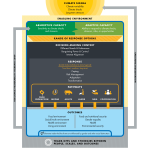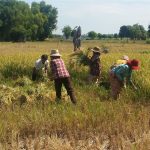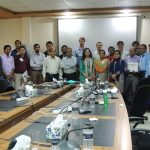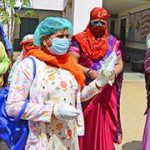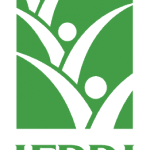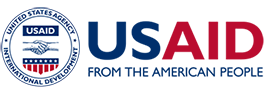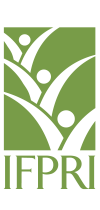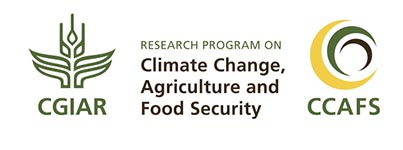Outputs
Framework
GCAN Framework
The GCAN framework serves as a tool to help better understand the linkages among climate, gender, and nutrition at multiple scales and over different time horizons. The framework also serves to identify entry points for policies, technologies and institutions that enhance synergies and reduce tradeoffs across the three development goals of nutrition, women’s empowerment and resilience that all form part of the 2016 Global Food Security Act.
Tools
2016 GCAN AgriLinks Webinar
Special webinar on how the Feed the Future Gender-Sensitive Climate-Smart Agriculture for Nutrition (GCAN) initiative aims to support USAID on the new Global Food Security Strategy.
2016 USAID CSA-GLEE
In December 2016, the USAID Bureau for Food Security, in collaboration with the USAID/Cambodia Mission, convened the Climate-Smart Agriculture Global Learning and Evidence Exchange (CSA-GLEE) meeting in Siem Reap, Cambodia, to deepen collaboration efforts and action on climate-smart agriculture.
Aflatoxins in food and feed: Is women’s empowerment the solution to this challenge?
This is one of several angles that Lynn Brown, independent consultant, assesses in the GCAN Policy Note No. 9. Aflatoxins affect all of Africa and the severity of the impact might well grow under climate change (as a forthcoming GCAN modeling study by IFPRI and the University of Florida is currently assessing).
Are we losing key nutrients in crops as a result of climate change?
The answer is, as always, complex. As a result of rising carbon dioxide (CO2) levels from fossil-fuel combustion, industry, and land-use change, important plant nutrients, such as iron, zinc and protein of major grains, including barley, rice and wheat are declining; some forage plants used by grazing livestock might also be affected. Other crops are partially or not at all affected because of the way they harvest nitrogen or perform photosynthesis. The loss of dietary nutrients in foods could translate to increased nutritional deficiency for hundreds of millions of poor people already on the brink of deficiency.
Climate Change and Nutrition Linkages – Discussion Paper, Policy Note, Slide Deck
The intersection of climate change, food security, and nutrition is critical given growing adverse climate change impacts that threaten food security and nutrition outcomes, especially for the most vulnerable in the global South. The GCAN team put together a discussion paper which uses a food systems approach to analyze the bidirectional relationships between climate change and food and nutrition along the entire food value chain.
Evaluating the risk of climate change-induced aflatoxin contamination in groundnuts and maize: Result of modeling analyses in six countries
This policy note summarizes research that assessed the likely impact of climate change on aflatoxin contamination in groundnuts (in Burkina Faso, Niger, and Nigeria) and in maize (in Burkina Faso, Honduras, Guatemala, Nepal, Niger, and Nigeria), and the impact of temperature, precipitation, and soil types on aflatoxin contamination. A future goal is to improve the calibration of the modeling software utilized to enable its use as an early warning tool for aflatoxin hotspots.
GCAN presentation to USAID mission in Bangladesh
During a week-long visit in Bangladesh in January 2017, the GCAN team presented key climate-gender-nutrition linkages. Productive discussions took place between the GCAN team and USAID Mission staff on priorities and potential research topics that would inform USAID's programming in Bangladesh. The GCAN team also met with local implementing partners and stakeholders to gather information on current initiatives related to climate-gender-nutrition linkages in Bangladesh. The GCAN team and the USAID Bangladesh Mission are currently working together to move these research topics forward. GCAN presentation to Bangladesh USAID Mission slide deck
GCAN presentation to USAID mission in Cambodia
During a week-long visit in Cambodia in December 2016, the GCAN team presented key climate-gender-nutrition linkages to the USAID Mission. Productive discussions took place between the GCAN team and USAID Mission staff on priorities and potential research topics that would inform USAID's programming in Cambodia. The GCAN team also met with local implementing partners and stakeholders to gather information on current initiatives related to climate-gender-nutrition linkages in Cambodia. GCAN presentation to Cambodia USAID mission slide deck
GCAN presentation to USAID mission in Zambia
During a week-long visit in Zambia in November 2016, the GCAN team presented key climate-gender-nutrition linkages to the USAID Mission. Productive discussions took place between the GCAN team and USAID Mission staff on priorities and potential research topics that would inform USAID's programming in Zambia. The GCAN team also met with local implementing partners and stakeholders to gather information on current initiatives related to climate-gender-nutrition linkages in Zambia. GCAN presentation to Zambia USAID Mission slide deck
GCAN at the Gender and Resilience Working Group
IFPRI hosted a recent meeting of the Gender and Resilience Working Group meeting on June 26, 2017, where two members of the GCAN Team, Elizabeth Bryan and Sophie Theis, presented the GCAN framework. The presentation provided the rationale behind the framework and explained how it compliments other frameworks on resilience, agriculture and nutrition. Members of the working group presented plans for the development of a gender and resilience framework currently being designed by the group. Discussions were held on how the GCAN framework might inform the gender and resilience framework and how both can be applied to strengthen the integration of climate resilience, gender and nutrition into project implementation.
GCAN presentation to USAID Mission in Nigeria
During a week-long visit in Nigeria in May 2017, the GCAN team presented key climate-gender-nutrition linkages to the USAID Mission. Productive discussions took place between the GCAN team and USAID Mission staff on priorities and potential research topics that would inform USAID's programming in Nigeria. The GCAN team also helped the mission with the Climate Risk Screening and Management of their different activities. GCAN presentation to Nigeria USAID mission - slide deck
Overcoming gender gaps in rural mechanization: Lessons from reaper-harvester service provision in Bangladesh – Policy Note
Custom hiring of labor- and cost-saving agricultural machinery services is increasingly common in South Asia. We studied the gendered differences in women’s and men’s involvement in emerging markets for reaper-harvester machinery services in the Feed the Future Zone in Bangladesh. We find that women benefit from managing and sometimes owning machinery services, as well as from the direct and indirect consequences of hiring such services to harvest their crops. However, a number of technical, economic, and cultural barriers constrain women’s full participation in these benefits. The brief provides suggestions for initiatives promoting rural machinery services to more fully engage women, as business owners and users of machinery, to expand the benefits of these markets, with relevance for South Asia and other farming geographies dominated by smallholders.
Policy note on the interlinkages of Climate Change, Gender and Nutrition in Nigeria
Increasing temperature, erratic rainfall, and other extreme events, such as floods and droughts, pose severe threats to development in Nigeria. Climate change will have significant adverse impacts on crop production and livelihoods, making the country’s poor and disadvantaged people even more vulnerable. It is imperative that the impact of relevant climate science on agricultural production be considered, together with important cross-cutting issues that influence agricultural growth, poverty alleviation, and climate resilience—especially gender and nutrition—if the goals of Feed the Future and the Global Food Security Strategy are to be achieved. This policy note summarizes assessments of these interlinkages in the Nigerian context under GCAN.
Research Priorities for Bangladesh – Policy Note
Climate change, coupled with high levels of poverty and population density, is a substantial threat to sustainable development in Bangladesh. Climate-related threats, such as flooding, inundation, salt-water intrusion, and changes in temperatures are increasing with climate change. Achieving the goals of Feed the Future and the Global Food Security Strategy requires careful consideration of the impact of relevant climate science on agricultural production, while at the same time considering other cross-cutting issues that influence agricultural growth, poverty alleviation, and resilience—especially gender and nutrition. This policy note summarizes assessments of these linkages in Bangladesh under GCAN.
Research Priorities for Cambodia – Policy Note
Agriculture is extremely important to Cambodia, representing at least one-third of the nation’s gross domestic product and providing employment to around 60 percent of the labor force. It is perhaps the most sensitive sector to changes in climate, with higher temperatures stressing plants, livestock, and workers, and rainfall variation through droughts and floods leading to crop losses and food insecurity. While it is important to consider the impact of climate change on agricultural production, it is also important to consider other cross-cutting issues to achieve the goals of Feed the Future and the Global Food Security Strategy—especially gender and nutrition. This policy note summarizes assessments of these linkages in Cambodia under GCAN
Research Priorities for Zambia – Policy Note
Climate change is a substantial threat to sustainable development in Zambia, a country experiencing weather hazards, drought and dry spells, seasonal and flash floods, and extreme temperatures that may well increase under climate change. Achieving the goals of Feed the Future and the Global Food Security Strategy requires careful consideration of the impact of relevant climate science on agricultural production, while at the same time considering other cross-cutting issues that influence agriculture-led poverty alleviation, resilience, and nutrition—such as gender. This policy note summarizes assessments of these linkages for Zambia under GCAN.
Using natural areas and empowering women to buffer food security and nutrition from climate shocks: Evidence from Ghana, Zambia, and Bangladesh
As climate change makes precipitation shocks more common, policymakers are becoming increasingly interested in protecting food systems and nutrition outcomes from the damaging effects of droughts and floods (Wheeler and von Braun, 2013). Increasing the resilience of nutrition and food security outcomes is especially critical throughout agrarian parts of the developing world, where human subsistence and well-being are directly affected by local rainfall. In this study, we use data from Feed the Future datasets from Ghana, Zambia, and Bangladesh to examine the impact of precipitation extremes on food security as well as the role of natural land cover and women’s empowerment in creating resilience. We first model the effects of extreme rainfall on indicators of nutrition and food security, and then examine whether women’s empowerment and environmental land cover types can dampen the effects of rainfall shocks on these food security and nutrition outcomes. Our results find that there is a strong association between extreme precipitation and household hunger. Further, they suggest that in certain contexts land cover types providing ecosystem services can reduce household hunger scores, that empowering women can mitigate the effects of precipitation shocks, and that there may be an interactive effect between ecosystem service availability and women’s empowerment.
Mapping
Feed the Future DATATHON Goes In-Country, Encouraging Original Research in Bangladesh
To showcase the use of Feed-the-Future Open Agriculture and Nutrition Datasets in agricultural research and development, IFPRI's Gender, Climate Change and Nutrition Integration Initiative (GCAN) organized the second Feed the Future DATATHON to make household-level data more accessible and interoperable with other databases, and in particular with spatially explicit, biophysical data layers.
GCAN at AIARD’s 55th Annual Conference
On June 2, 2019, GCAN team member Elizabeth Bryan participated in the Association for International Agriculture and Rural Development’s (AIARD) 55th Annual Conference in a session on What will it Take to Build Resilient Food Systems Globally?. Her lightning talk highlighted GCAN research on “Why Climate Resilience in Agriculture is not Possible Without Considering Gender.”
GCAN at Cracking the Nut 2018
GCAN together with Cultural Practice led a session on addressing gender and nutrition issues in climate-smart technology design and dissemination at the Cracking the Nut 2018 conference that took place on June 12-13, 2018 in Antigua, Guatemala.
Presentation of GCAN results in Bangladesh
On May 7, 2019, the GCAN team presented the results of GCAN research activities in Bangladesh at Dhaka’s Lakeshore Hotel at a seminar on “Working at the intersection of climate change, gender and nutrition: A useful proposition?”
Resilience Measurement, Evidence, and Learning (RMEL) Annual Conference – November 2018
GCAN will be participating in the Resilience Measurement, Evidence, and Learning (RMEL) Annual Conference, November 12-15 in New Orleans. The goals of the conference are to accelerate progress on building resilience through improved measurement, analytical strategies, and learning, and bring forward evidence about what works for enhancing the resilience of people and systems in differing contexts. GCAN will join Mercy Corps, ACDI/VOCA, FHI 360, and Nathan Associates for a panel entitled, “Resilience for all? Working towards inclusive and equitable resilience programs and measurement.”
Towards Resilient Livelihoods, Food Security, and Nutrition for All: Confronting the Gendered Impacts of COVID-19
The GCAN phone survey data on the impacts of Covid-19 on rural women was presented at an IFPRI policy seminar. Here is the full presentation of the GCAN phone survey cross-country results.
Webinar: Aflatoxins: The Climate, Gender and Nutritional Linkages (under the GCAN Initiative)
A video recording of this event is now available. Click here to view.
Webinar: Linking Climate Change, Gender and Nutrition – Approaches, Highlights and the Way Forward (under the GCAN Initiative)
A video recording of this event is now available. Click here to view. Event Date: September 17, 2019
Datasets
Assessing the risk of COVID-19 in Feed-the-Future countries
As COVID-19 vaccines are becoming available, governments will need to assess the number and location of the most vulnerable people within their populations. However, problematically, tracking data for most low- and middle-income countries are only available at the national level. To support the COVID-19 relief effort, GCAN was commissioned to develop a subnational dataset of key COVID-19 risk indicators and potential risk hotspots. Based on patient data compiled and analyzed worldwide, the science community's consensus is that key COVID-19 risk factors include age, sex, and obesity. Being old, male, and obese increases both vulnerability to infection and the likelihood of negative outcomes. Based on each indicator's COVID-19 death hazard ratio, a composite index for the second-level subnational administrative units was constructed using exploratory factor analysis. Each Country Factsheet presents the maps of each indicator and the composite index resulting in hotspots.
BIHS Harmonized Dataset
To facilitate the use of Feed-the-Future Open Agriculture and Nutrition Datasets in agricultural research and development, the IFPRI's Gender, Climate Change and Nutrition Integration (GCAN) team harmonized and standardized the Bangladesh Integrated Household Survey (BIHS) (2011 and 2015, available on IFPRI Dataverse) across four key food security-relevant domains (climate, agriculture, nutrition, and gender), with the objective to make household-level data more accessible and interoperable with other databases, and in particular with spatially-explicit, biophysical data layers. The harmonization and standardization will allow users to work with the BIHS and other Feed-the-Future survey data across countries, with the same variable definitions, labels, and contents.
Feed the Future Data Harmonization – USAID Seminar Presentation, June 7, 2018
On June 7, Carlo Azzarri with Zhe Guo presented a seminar on the GCAN Data Harmonization to the USAID Feed the Future's Monitoring, Evaluation, and Learning (MEL) team. The seminar featured GCAN’s ongoing efforts to harmonize and standardize Feed the Future Population-Based Survey datasets across gender, agriculture, nutrition, and climate dimensions. Using the available FTF baseline as well as interim datasets from three countries (Bangladesh, Ghana, and Zambia), a series of preliminary insights gained from the data ex-post harmonization were presented and discussed with the USAID MEL team. For example, higher soil fertility was shown to be correlated with improved child nutrition outcomes in Zambia; higher level of plant vegetation associated with lower household hunger in Ghana; and finally higher temperature and more rainfall correlated with higher workload for women. The harmonized datasets are publicly available on the GCAN project website (https://gcan.ifpri.info/category/outputs/Datasets/) and IFPRI’s data repository (https://dataverse.harvard.edu/dataverse/IFPRI).
Feed the Future DATATHON Goes In-Country, Encouraging Original Research in Bangladesh
To showcase the use of Feed-the-Future Open Agriculture and Nutrition Datasets in agricultural research and development, IFPRI's Gender, Climate Change and Nutrition Integration Initiative (GCAN) organized the second Feed the Future DATATHON to make household-level data more accessible and interoperable with other databases, and in particular with spatially explicit, biophysical data layers.
Ghana Feed The Future Harmonized Dataset
As part of its ongoing efforts to facilitate the use of Feed-the-Future Open Agriculture and Nutrition Datasets in agricultural research and development, the GCAN team harmonized and standardized data for Ghana’s 2012 Feed-the-Future Baseline Household Survey. This dataset connects across four key food security-relevant domains (climate, agriculture, nutrition, and gender), with the objective to make household-level data more accessible and interoperable with other databases, and in particular with spatially-explicit, biophysical data layers. With these data, users can more easily address policy-relevant questions incorporating both biophysical and socioeconomic indicators. This is the second release of its kind for the GCAN team, following the release of Bangladesh harmonized data in October 2017.
Zambia RALS Harmonized Dataset
The team processed the Feed the Future baseline and interim datasets for Zambia, applying standard processing methods to enhance their accessibility, interoperability, and comparison with other FTF datasets. This work entailed standardization of variable names and labels, the creation of derived socio-economic indicators such as dietary diversity scores, household dependency ratios, and household age and gender composition variables. Moreover, the provision of household GIS coordinates (offset for confidentiality purposes) would allow users to match data at different levels. The team used and processed the Rural Agricultural Livelihood Survey (RALS) 2012 and 2015, although the dataset at the unit-level cannot be shared as of yet pending confirmation of the data sharing agreements with the data provider.
